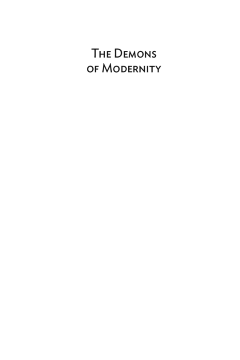
Additional Information
Book Details
Abstract
Ingmar Bergman’s films had a very broad and rich relationship with the rest of European cinema, contrary to the myth that Bergman was a peripheral figure, culturally and aesthetically isolated from the rest of Europe. This book contends that he should be put at the very center of European film history by chronologically comparing Bergman’s relationship to key European directors such as Carl Theodor Dreyer, Jean-Luc Godard, Michelangelo Antonioni, and Andrei Tarkovsky, and also looks at Bergman’s critical relationship to key movements in film history such as the French New Wave. In so doing, it demonstrates how Ingmar Bergman’s films illustrate the demonic struggle in modernity between faith and secularity through “his intense preoccupation with the malaise of intimacy.”
John Orr† was Emeritus Professor at the University of Edinburgh where he taught film studies. He contributed to many film journals, and his books include Cinema and Modernity, Contemporary Cinema, The Art and Politics of Film, and Hitchcock and Twentieth Century Cinema. His most recent book is Romantics and Modernists in British Cinema (Edinburgh UP, 2010).
“Orr's analysis offers consistently fresh comparisons, tracing ways that… represent rich and subtle cinematic conversations. Orr's reach is broad, detailed, and informed by both current critical conversations and the perspective of intervening decades. Highly recommended.” · Choice
“A reader who has viewed and scrutinized the numerous films discussed in Orr’s contribution will benefit from the thoughtful insights of an accomplished film scholar in this virtuosic étude.” · Scandinavian Studies
“…one of the most remarkable features of the book is the emphasis, usually forgotten, on contextualizing Bergman among other film traditions, taking into consideration not only subject matter criteria, but historical or socio-economic issues… Precisely at a time that increasingly advocates for interdisciplinary approaches and contextualization of cultural phenomena, this book provides the necessary material and insight and opens the opportunity for addressing important issues on the impact of modernist European films in the history of cinema and for us to move forward into further discussion on theoretical and methodological questions.” · Historical Journal of Film, Radio and Television
“On the evidence of this brilliantly allusive study of Ingmar Bergman, John Orr, had it not been for his premature passing, would have become one of the world's most influential of film analysts. Even beneath the shadow of the plethora of books on Bergman, Orr's approach is distinctive… He emphasizes the maestro's courageous leap into Modernism in the early 1960's, and the profound influence he exerted on his contemporaries. It is a pleasure to read Orr's elegant prose, which eschews the obtuse terminology of semiotics in favor of a lucid, almost passionate approach to the material. Bergman, one feels, would have enjoyed this book.” · Peter Cowie, author of Ingmar Bergman, A Critical Biography.
“The Demons of Modernity hits the ground running. We travel around the sociology, aesthetics and demonology of Ingmar Bergman with John Orr's great speed of thought and agility. The book is bracing, challenging, beautifully judged, fair minded, unstinting, and exhilarating.” · Mark Cousins, filmmaker and director of The Story of Film: An Odyssey
